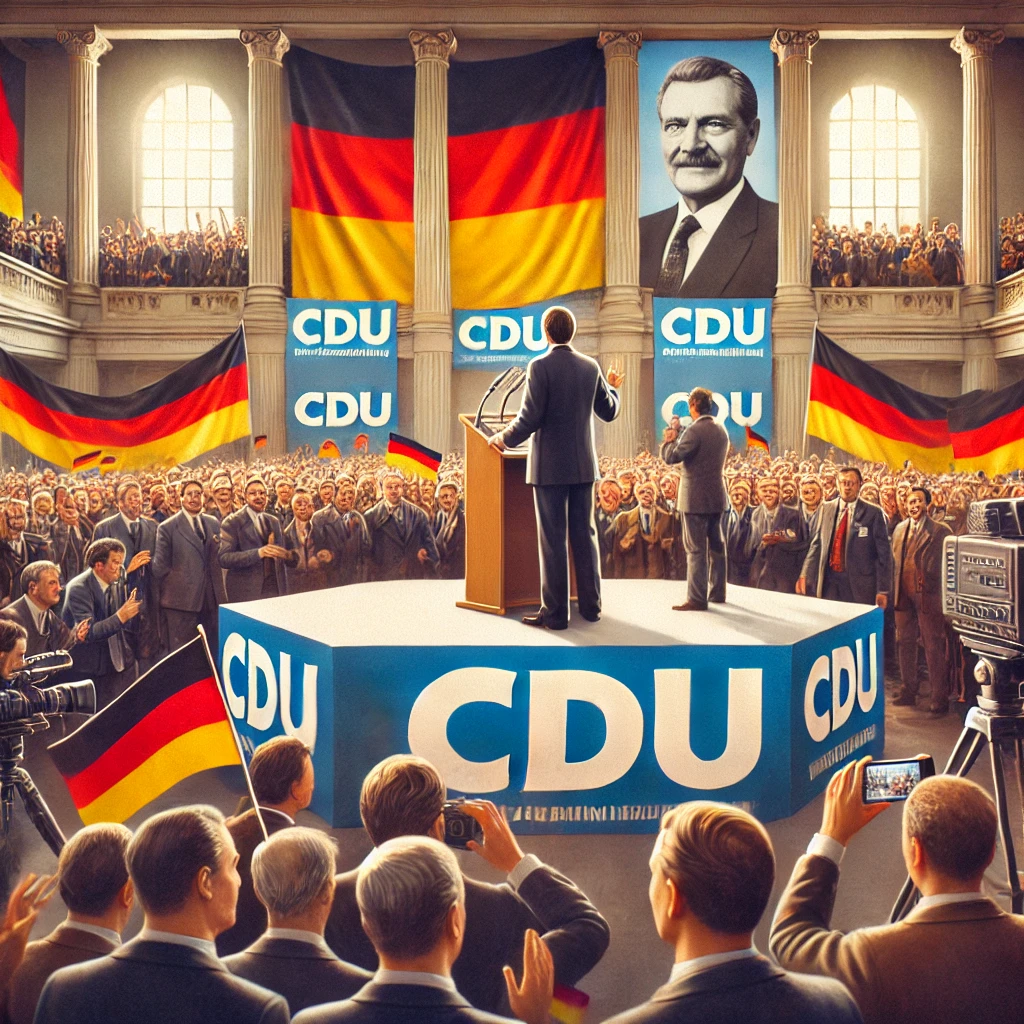
Germany is on the brink of a major political shift as preliminary results from the latest federal elections indicate that Friedrich Merz, leader of the center-right Christian Democratic Union (CDU), is poised to become the next chancellor. Meanwhile, the far-right Alternative for Germany (AfD) has made unprecedented gains, reshaping the country’s political landscape.
CDU’s Resurgence and Merz’s Path to the Chancellery After a period of decline following Angela Merkel’s departure, the CDU has regained significant ground under Friedrich Merz’s leadership. The conservative party has emerged as the largest faction in the Bundestag, outpacing Chancellor Olaf Scholz’s Social Democratic Party (SPD), which has suffered a substantial loss of support.
Merz’s campaign focused on economic reforms, strengthening Germany’s defense posture, and addressing the country’s energy crisis. His message appears to have resonated with voters concerned about economic stagnation and security challenges. With coalition negotiations looming, Merz is expected to seek alliances with the liberal Free Democratic Party (FDP) and possibly the Greens to secure a governing majority.
AfD’s Historic Gains Spark Concerns The most striking development of the election has been the surge of the far-right AfD, which has secured a record number of seats in the Bundestag. The party’s strong performance, particularly in eastern Germany, highlights growing public frustration with immigration policies, economic inequality, and dissatisfaction with traditional parties.
Despite its electoral success, AfD remains a controversial force in German politics, with mainstream parties refusing to cooperate with it at the federal level. Its rise, however, signals a broader shift in German political discourse, with nationalist and anti-immigration rhetoric gaining traction among voters.
Challenges Ahead for Merz If Merz secures the chancellorship, he will face significant challenges, including:
- Coalition Building: Forming a stable government will require careful negotiations with coalition partners, particularly amid ideological differences.
- Economic Recovery: Addressing inflation, energy prices, and industrial competitiveness will be a priority.
- Foreign Policy and EU Relations: Navigating Germany’s role in the European Union and handling relations with global powers such as the U.S., China, and Russia.
- Countering AfD’s Influence: Managing growing far-right sentiment while addressing voter concerns that fueled AfD’s rise.
A Defining Moment for Germany Germany’s political landscape is undergoing a profound transformation, with CDU’s return to power and AfD’s electoral breakthrough marking a pivotal moment. As coalition talks commence, all eyes will be on Merz and his ability to forge alliances and deliver on his campaign promises. His leadership will be crucial in determining Germany’s direction in the coming years, both domestically and on the international stage.





